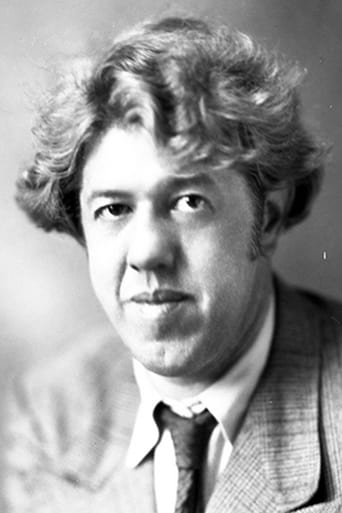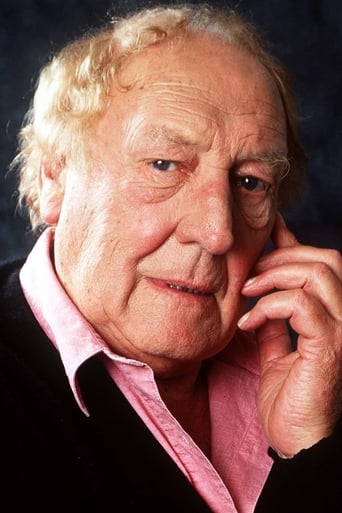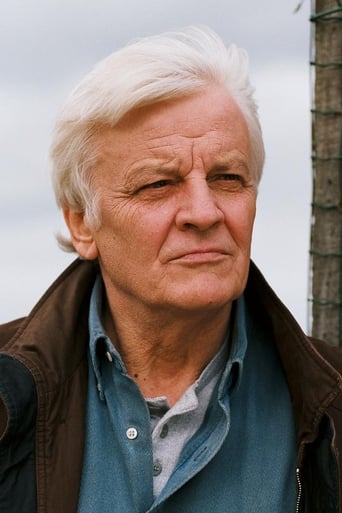Scanialara
You won't be disappointed!
Console
best movie i've ever seen.
Plustown
A lot of perfectly good film show their cards early, establish a unique premise and let the audience explore a topic at a leisurely pace, without much in terms of surprise. this film is not one of those films.
Simon
A very beautiful, elegant and poetic film. Far more enjoyable than I expected (I worried that I would have to sit through another Lancelot du Lac) and far better than the reputation of Mrr. Borowczyk suggests. I wish Walerian Borowczyk retired after making this one – as judging from Blanche and preceding Goto, as well as from his animations we could think of him as of great talent who did not direct enough films, but instead we have what we have - Franco-Polish equivalent of Tinto Brass. Blanche is a really nice film - following certain trends of Pasolini's Trilogy of Life and precursor of similar medieval undertakings of both Rohmer and Bresson, alas, he traded respectability for commercial success – churning art porn exercises at alarming speed. With the exception of the Story of the Sin - all of his erotic output is just cold, nighttime entertainment, Arty soft-core, or Soft-core art but incomparable to Blanche and Goto.
edula
In a world where excess seems to equate success, it is easy to see why Walerian Borowczyk's movies are finally gaining him the recognition he deserves. True, in many cases, what was once considered "smut" by the viewing public is now regarded as erotic masterpieces, and many of Borowkzyk's films, 'The Beast', 'Immoral Tales', even his art-nunsploitation flick 'Behind Convent Walls', seem to be gaining widespread acclaim. This is thanks, in part, to critics like Mark Kermode, who presented 'The Beast' uncut on the FilmFour channel, and also DVD houses such as Cult Epics, who have released beautifully remastered versions of many Borowczyk films. However, words almost fail me when it comes to the availability of 'Blanche'. This beautiful film, a medieval fairytale-cum-tragedy, is worlds away from erotic fare such as 'The Beast', and is Borowczyk's finest hour. And yet, whilst there is a 3-disc special edition of the latter title, 'Blanche' has never received anywhere near as much care and attention. In fact, apart from a mid-90's VHS version (which seemed to drop out of the shops as quickly and quietly as it had dropped in, but now fetches a fairly excessive price on ebay), 'Blanche' is practically impossible to find anywhere. It doesn't even have its own page on Wikipedia! Surely this is a crime against all cinema lovers, and to Borowczyk himself, who deserves to be remembered as the great filmmaker that he was, and not just a creator of interesting erotica.
netwallah
Not Borowczyk's usual sort of movie (he usually produces erotica), this one is a downright period tragedy with excellent actors. True, there is some gratuitous nudity, as the film opens with Blanche (Ligia Branice) stepping out of the bath. It's not clear why this is necessary, because she spends the rest of the film modestly dressed and cowled. The story goes like this: Blanche is a beautiful young woman married to an old man, the count (Michel Simon), who has a son, Nicolas (Lawrence Trimble) just back from the crusades. The king (George Wilson) arrives with a coterie of friars and a page, Bartolomeo (Jacques Perrin), who has a reputation as a seducer. He sets his eye on Blanche, but she turns out to be innocent and pure. The king, too, sets his eye on her, and sneaks off in the night, wearing Bartolomeo's cloak, to find her bedchamber, but he is challenged and wounded in the hand by Nicolas, who has sworn to defend his step-mother's honour. The page cuts his hand to cover for the king, and the king sends him away with a message. Before he can get very far, Nicolas challenges him, and Bartolomeo—strangely—disarms him. Then he tells Nicolas to forget Blanche and go back to court with him and he agrees. But as Nicolas returns to the castle to say goodbye to Blanche, Bartolomeo reads the king's message, fallen out of the sealed dispatch box in the fight. The treacherous king has ordered a troop of mercenaries with a battering ram and a fine litter to carry Blanche away, and has ordered his officers to place Bartolomeo in the tower. So off he goes to warn Blanche; he is hiding in her bedchamber when Nicolas declares his love for her, says goodbye, and faints, and then the Count comes, concludes Blanche is hiding a man, and everything falls apart. The count walls up the bedchamber and the king uses the room as a chapel. When the wall is torn down, the Count considers the unconscious man proof of his wife's dishonour, though Bartolomeo and Nicolas defend her. The King retrieves the undelivered note and contends with the Count for the page. A trial by combat ensues, in which Nicolas dies willingly, to prove her innocence. The King and Count contend for the page and the King allows him to stay behind for one day—during which Blanche poisons herself, the Count sends Bartolomeo to death by dragging behind a galloping horse, and he stabs himself in the heart as the king returns. The King prays and remembers Blanche, but it seems insufficient in the face of the terrible damage. As I said, the acting is very good, with one exception. Simon as the Count is massive, toad-faced, and alternately charming and repellent; the King is stately and incredibly selfish; Nicolas is handsome and upright, though strangely sensitive for a warrior; Bartolomeo is young and handsome and merry. But Ligia Branice, in the central role, is nearly a disaster—she has a good profile and big eyes and looks quite lovely. However, her acting consists of grotesque face-making, as when she expresses horror at affronts to her honour. She wears heavy make-up, lipstick and eyeliner, even after days in the dungeon. She's a mistake. The music is very good, faithful to the period, and the period costumes and decor are excellent, and even the story—a romantic pentangle—is pretty good.
monabe
Blanche is an example of Continental 70's film making at its most colourful, adventurous and luschious. See this medieval fantasy as a precursor of all those artless attempts to evoke times of mythic romance and violence that fail to pleasure the senses as this does. A directorial triumph. Recommended to those wishing to indulge their cinematic senses.




